ASX falls amid fears of worsening unemployment and economic conditions
The ASX’s morning rise has been short-lived, with the big four banks among the losers as Australian shares lost ground.
News
Don't miss out on the headlines from News. Followed categories will be added to My News.
The Australian share market has lost ground as warnings mount of worsening unemployment and economic conditions because of the coronavirus pandemic.
The S&P/ASX200 benchmark index was down 48.4 points, or 0.88 per cent, to 5,439.7 points at 1205 AEST on Wednesday, having jumped by as much as 44.9 points at the open on a strong Wall Street lead.
The All Ordinaries index was down 43.5 points, or 0.78 per cent, to 5,499.0.
Only consumer staples, tech and telco stocks were ahead as the energy sector dropped on lower oil prices and the banking and mining heavyweights also fell further.
US stocks rose overnight after the White House said President Donald Trump would make a number of announcements about reopening the US economy.
Meanwhile, the International Monetary Fund expects Australia to suffer its biggest economic blow since the Great Depression of the 1930s.
The IMF said it expected unemployment to remain high for at least two years beyond the coronavirus pandemic, with Australia to be among the bottom third of the world’s top 20 economies.
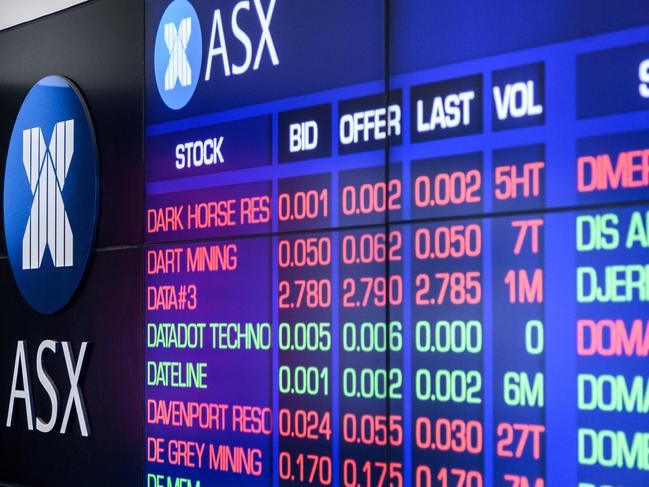
Energy firms Woodside Petroleum, Santos, Origin, Oil Search and Beach Energy fell by between 2.55 per cent and 6.51 per cent after investors bet that a virus-driven drop in fuel demand would be too much for global output cuts to offset.
Among the big banks, Commonwealth Bank fell 1.1 per cent to $62.06, ANZ dropped 0.77 per cent to $16.65 and Westpac shed 1.48 per cent to $16.03. NAB fell 0.42 per cent to $16.47 and Macquarie Group fell 0.73 per cent to $101.07.
Insurer QBE was trading 1.37 per cent lower at $8.985 despite successfully completing its $1.2 billion institutional share placement.
Mining titan BHP fell 1.8 per cent to $31.09, Rio Tinto dropped 1.3 per cent to $89.65 and Fortescue Metals fell 0.69 per cent to $11.49.
Goldminer Newcrest was flat at $28.83 after a strong start to the day, while fellow precious metals miners Northern Star and Evolution fell by 1.83 per cent and 2.22 per cent respectively.
Health benchmark CSL was down 1.4 per cent to $321.405, with Ramsay up 0.03 per cent at $64.18, Cochlear down 0.58 per cent at $196.42, and Sonic Healthcare climbing by 2.91 per cent to $25.09.
Supermarket Woolworths fell 0.17 per cent to $36.08 per cent and Coles was just 0.06 per cent higher at $16.34 after jumping higher at the open. Infant formula producer Bubs was still 8.62 per cent higher at 94.5 cents after reporting its highest quarterly gross revenue thanks to booming demand in China for infant formula.
A2 Milk also eased from early highs but was still up 2.8 per cent at $17.97. Telstra stocks were down 0.95 per cent to $3.13 and Wesfarmers dropped 0.83 per cent to $37.495.
The Australian dollar was buying 64.25 US cents at 1205 AEST, up from 64.10 US cents at the close of markets on Tuesday.
WALL STREET CONTINUES GAINS
US stocks soared Tuesday as investors looked forward to the reopening of the world’s biggest economy, even as earnings reports from big banks indicated that the coronavirus is taking a toll.
The Dow Jones Industrial Average rose about 551 points, or 2.4 per cent, in midday trading, attempting to continue last week’s historic rally. The S&P 500 jumped 2.8 per cent, and the Nasdaq Composite rose 3.7 per cent.
The early gains put the blue-chip index on track to log its fourth gain in the past six trading days. Stocks have climbed on indications the spread of the coronavirus is easing in hard-hit locations.
State governors began discussing this week how they would gradually ease social-distancing guidelines.
The recent optimism by government leaders and investors does not reflect the pain being felt by businesses which have been forced to lock their doors and turn away customers.
More than 16 million people have filed for unemployment in the past three weeks, as businesses have been forced to shut down to prevent the virus’ spread.
The International Monetary Fund said the global economy is almost certainly in a recession, with its chief economist predicting that the downturn will be worse than the global financial crisis a decade ago.
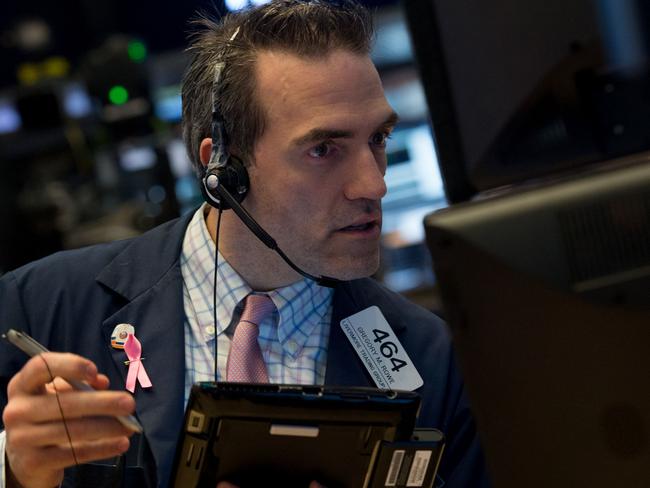
Meanwhile, Wall Street was moving north as the market waited to hear first-quarter earnings news from major companies and just when exactly Washington and state governors were thinking about reopening the nation.
Stocks moved broadly higher on Wall Street Tuesday as the White House and a number of state governors weigh how to gradually reopen the economy following some signs that the coronavirus pandemic may be levelling off in some of the hardest-hit areas.
Traders also had their eye on Johnson & Johnson, JPMorgan Chase and other big companies issuing their earnings reports for the first three months of the year, giving investors an early peek into how the outbreak is affecting their business.
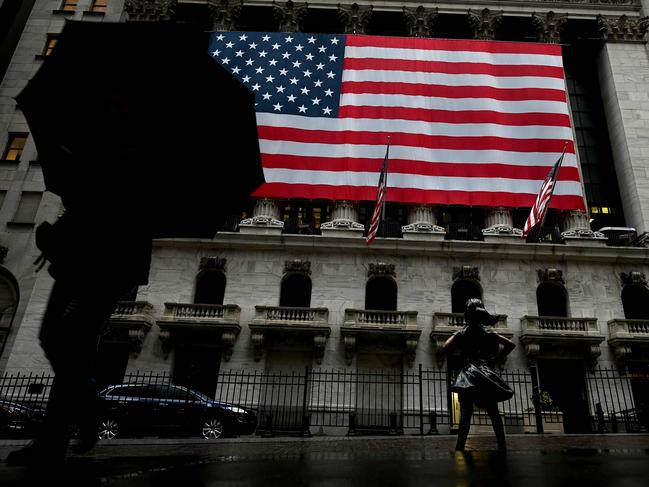
The S&P 500 was up 2.8 per cent, recovering all of its losses from a day earlier. The benchmark index surged 12 per cent last week, though it remains about 18 per cent below its all-time high in February.
As the markets brace for first-quarter earnings reports, investors are already anticipating that specific sectors will be telling tales of woe.
Oil companies, airlines, hotels, restaurants, retailers and automakers will report steep losses and issue forecasts for the coming months. Ford Motor, for example, said on Monday that it would lose $A1 billion in the first quarter — not counting some expenses like interest and taxes — down from a $A4 billion profit in the first three months of 2019.
Companies in these sectors are furloughing or laying off employees. It’s here that government aid could prove decisive — and executives, speaking on publicly accessible earnings calls, may reveal whether they will apply for assistance from the Treasury Department and the Federal Reserve, and how much.
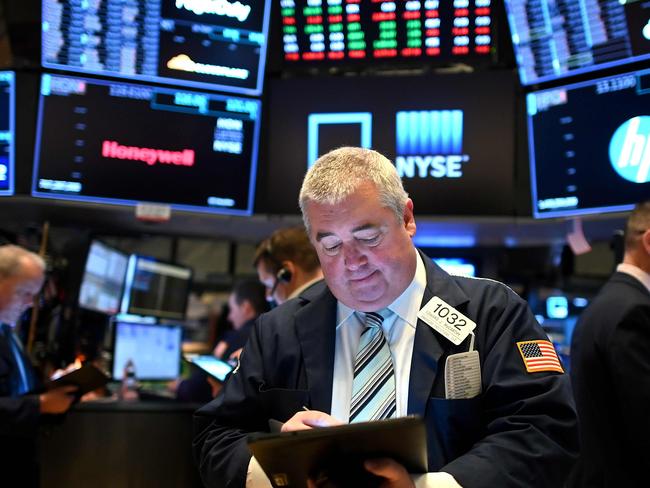
Stock markets rose as positive Chinese trade data lifted some of the economic gloom brought on by COVID-19.
Oil prices fell, despite US President Donald Trump claiming that producers were mulling a global daily output cut of 20 million barrels.
The dollar dropped against main rivals, helping to push gold above $1,700 an ounce -- the highest level for more than seven years, according to traders.
“Markets continue to react in an odd way, mostly ignoring all the bad figures that have come their way and focusing on the positives, such as the China figures,” said Chris Beauchamp, chief market analyst at IG trading group.
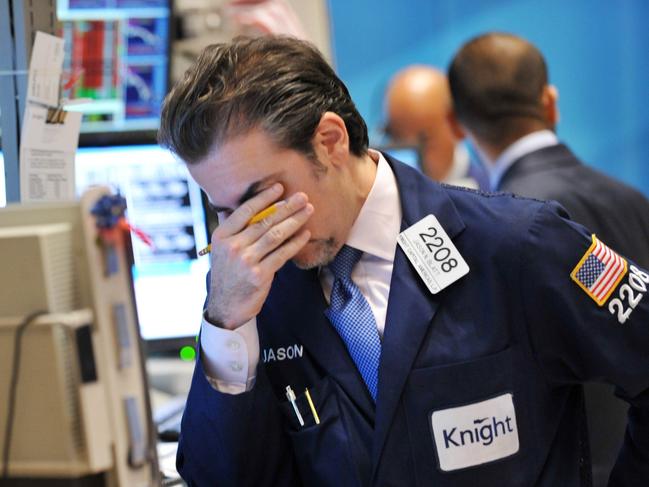
Asian stock markets kicked off the day with gains after official data showed Chinese exports fell 6.6 per cent and imports slid 0.9 per cent in March on a yearly basis.
But Julian Evans-Pritchard of Capital Economics warned “the worst is still to come” for China’s export businesses, with more economic headwinds likely in the months ahead as major trading partners battle their coronavirus outbreaks.
Investors will now await the release of China’s quarterly GDP figures on Friday, with forecasters predicting a 6.2 per cent contraction.
Shanghai’s main index finished 1.6 per cent higher and Hong Kong returned from a four-day break to close up 0.6 per cent Tuesday.

“The data coming out of China is a rough leading indicator for the rest of the world,” noted Jasper Lawler, head of research at London Capital Group.
“The smaller exports drop is a clue that China’s first-quarter growth figures released on Friday could also surprise on the topside.” After a strong start, European bourses tailed off approaching the half way stage, while London slipped into a slight loss.
Britain’s economy could shrink by an unprecedented 13 per cent in 2020 in the case of a three-month coronavirus lockdown, according to a scenario published by UK fiscal watchdog the Office for Budget Responsibility.
Trading was halted in Frankfurt for several hours as the Xetra trading system, on which several European exchanges depend, experienced technical problems.
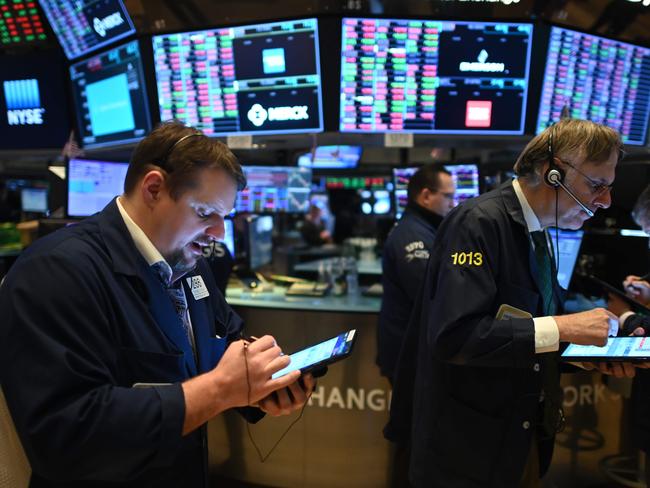
On the corporate front Tuesday, JPMorgan Chase reported a huge decline in first-quarter earnings after setting aside nearly $8.3 billion for loans vulnerable to the economic devastation from coronavirus shutdowns.
“There is still a lot uncertainty over whether the reduction in output will be enough,” said Neil Wilson, chief market analyst at trading website Markets.com “The biggest uncertainty for oil is how quickly does demand recover in the medium term? Indeed, this is the central question for risk assets in general,” he added.
Oil producing nations at the weekend thrashed out a compromise to cut output by nearly 10 million barrels per day from May, while Trump said the final figure could end up being double that level.
Oil prices have crashed as the coronavirus outbreak sends demand off a cliff, with a Saudi-Russian price war compounding the crisis.
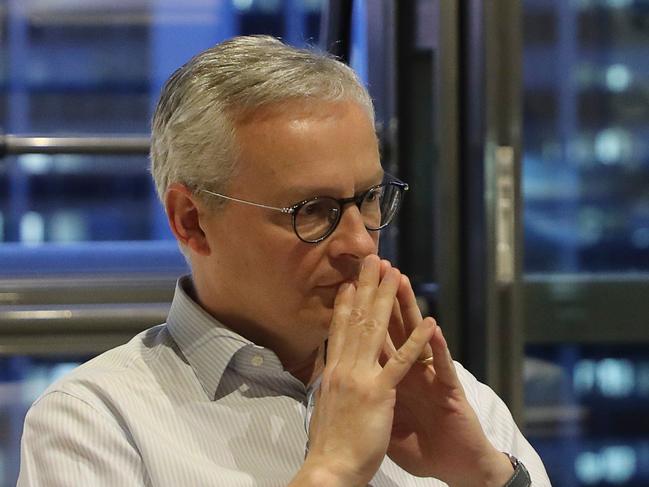
The outbreak of the coronavirus has dealt a shock to the global economy with unprecedented speed. Following are developments Tuesday related to the global economy, the workplace and the spread of the virus.
Economists are still trying to put into context the shock that the world has absorbed, and will absorb. On Tuesday, the International Monetary Fund put the damage at Great Depression levels.
France is forecasting an 8 per cent drop in growth this year and is staring down its worst recession since World War II. And that 8 per cent drop may be optimistic, Finance Minister Bruno Le Maire said.
Originally published as ASX falls amid fears of worsening unemployment and economic conditions
